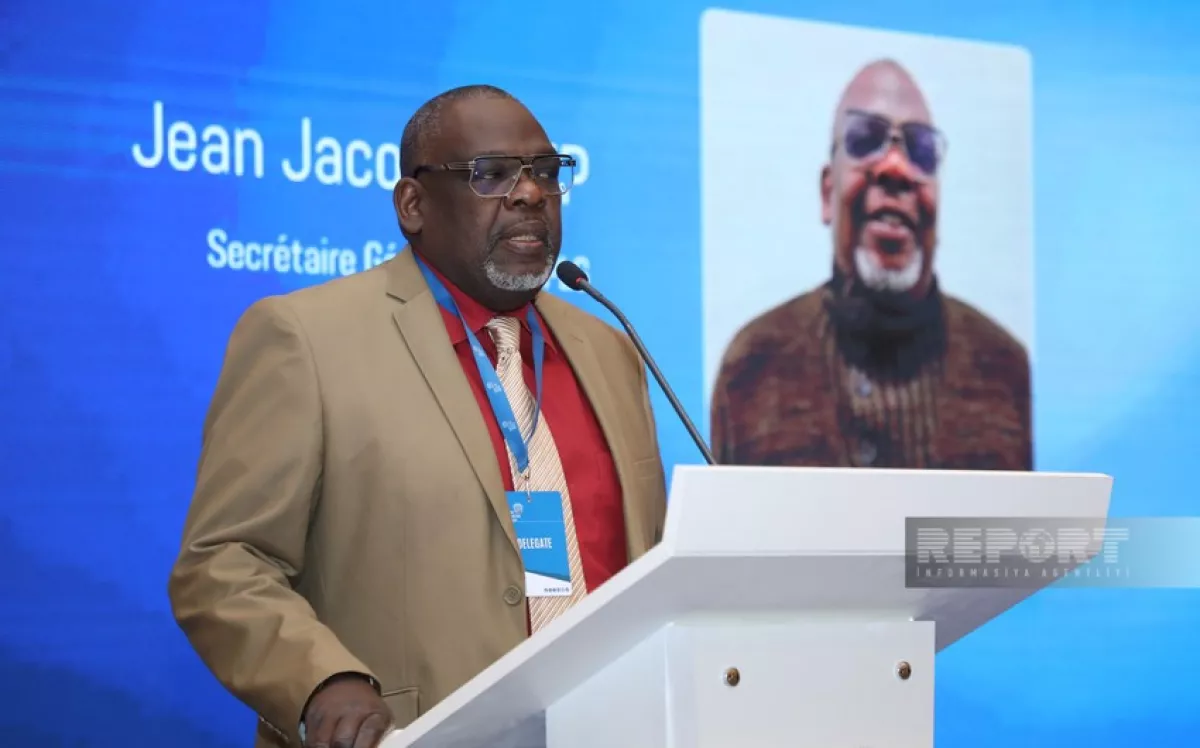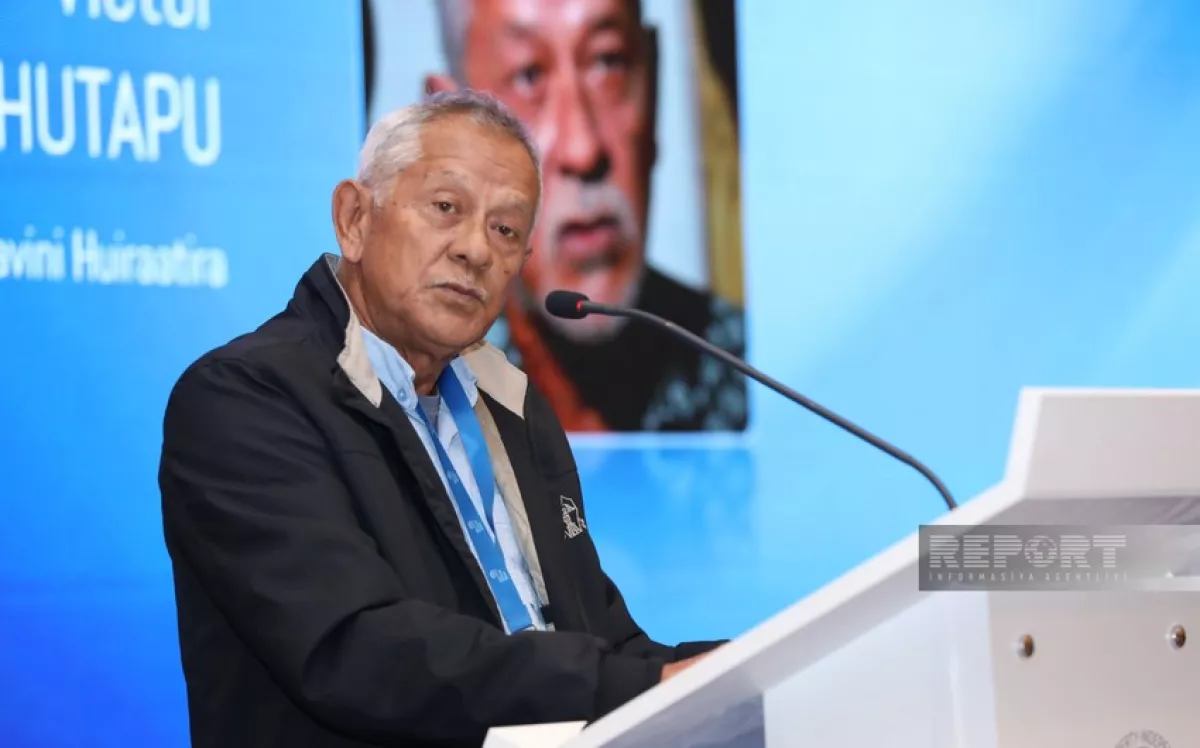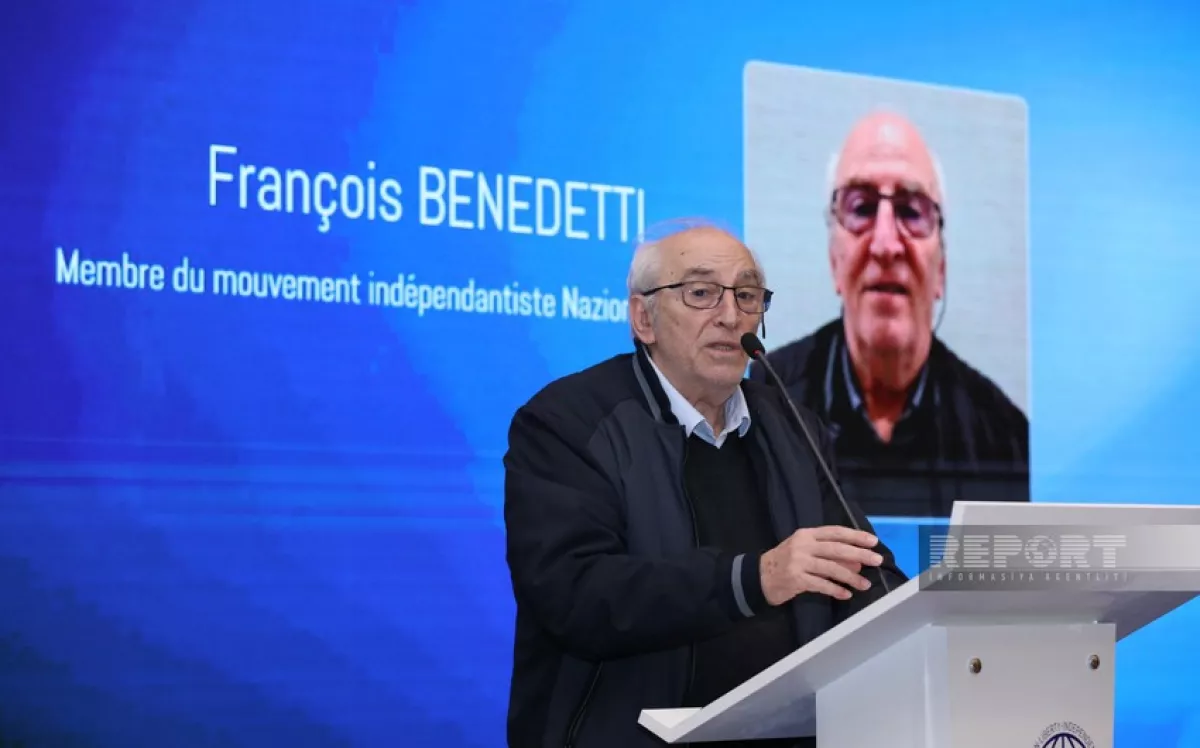New Caledonian MP accuses Macron of perpetuating colonial assimilation PHOTO
New Caledonian MP Maria Isabella Saliga has accused French President Emmanuel Macron of perpetuating colonial assimilation.
She made the relevant remarks at the international conference "Colonialism: Eradication of Religious and National Identity," which is underway in Baku on March 29, Caliber.Az reports via local media.
"Macron's policy serves his personal interests, and we are facing serious threats," Saliga stated. "If we are not heard, our struggle will take on a different character," she added, implying that further resistance could lead to more severe consequences.
Saliga highlighted Baku's emergence as a hub for anti-colonialist movements, acknowledging its central role in the fight for the rights of oppressed peoples. "We are addressing the world from here," she said, reinforcing the idea that the struggle for liberation is gaining international momentum.

Jean-Jacob Bissep, Chairman of the People's Union for the Liberation of Guadeloupe, echoed Saliga's sentiments, particularly with regard to the French government's efforts to impose French as the official language of the island.
"This attempt is part of the assimilation process," Bissep said, warning that such policies were a form of cultural erasure. Drawing on historical parallels, he described forced assimilation as a weapon of mass destruction, which had been used to suppress African culture under the guise of civilization. He emphasized Guadeloupe's commitment to preserving its traditions and language, calling on other colonized peoples to unite in their shared struggle.

Victor Maamaatuaiaihutapu, Secretary-General of the Tavini Huiraatira Party from French Polynesia, also addressed the conference, speaking about the destructive effects of assimilation on indigenous cultures.
"Our traditions have been subjected to interference from various administrative structures. They do not realize that we want to preserve our cultural heritage," he explained. He called for greater autonomy for French Polynesia, asserting that the people's right to self-determination should be recognized and respected.

Meanwhile, addressing the event, representative of the Corsican party Nazione Francois Benedetti, said that the people of Corsica are at risk of extinction due to the long-standing colonial policy of official Paris, aimed at assimilating the indigenous population and destroying their national identity.
"France is trying in every possible way to erase the very existence of our people. Many people mistakenly consider Corsicans to be French, but this is absolutely not true. Paris has taken away from Corsica not only the past, but also the present," the politician emphasized.
According to him, in addition to cultural and linguistic pressure, France also uses economic levers to slow down the development of the island.
Benedetti also expressed gratitude to the Baku Initiative Group (BIG) for its work aimed at supporting national liberation movements and the fight against colonialism.
"We know that France is far from the only country that pursues a colonial policy. Corsica, like other territories, is seeking liberation from oppression. We need solidarity in this struggle, both with those who fight against French colonialism and with those who resist the Dutch yoke," he noted.
To note, the conference, organized by the Baku Initiative Group, is attended by representatives of independence movements from territories under the colonial control of France and the Netherlands, including Guadeloupe, French Guiana, New Caledonia (Kanaki), Corsica, Martinique, Reunion, Bonaire, French Polynesia, Mayotte, Wallis and Futuna, as well as relatives of political prisoners.
A memorandum of understanding is expected to be signed within the framework of the conference between the Baku Initiative Group and one of the independence movements.
For the record, the Baku Initiative Group, an international non-governmental organization, is dedicated to fostering international partnerships in the fields of decolonization and human rights.
The group firmly and continuously supports the struggles for freedom and independence of those living under colonial and neocolonial rule, committing to solidarity and practical assistance.
Simultaneously, the organization contributes to women empowerment, human rights, environmental, and cultural issues.
By Khagan Isayev








